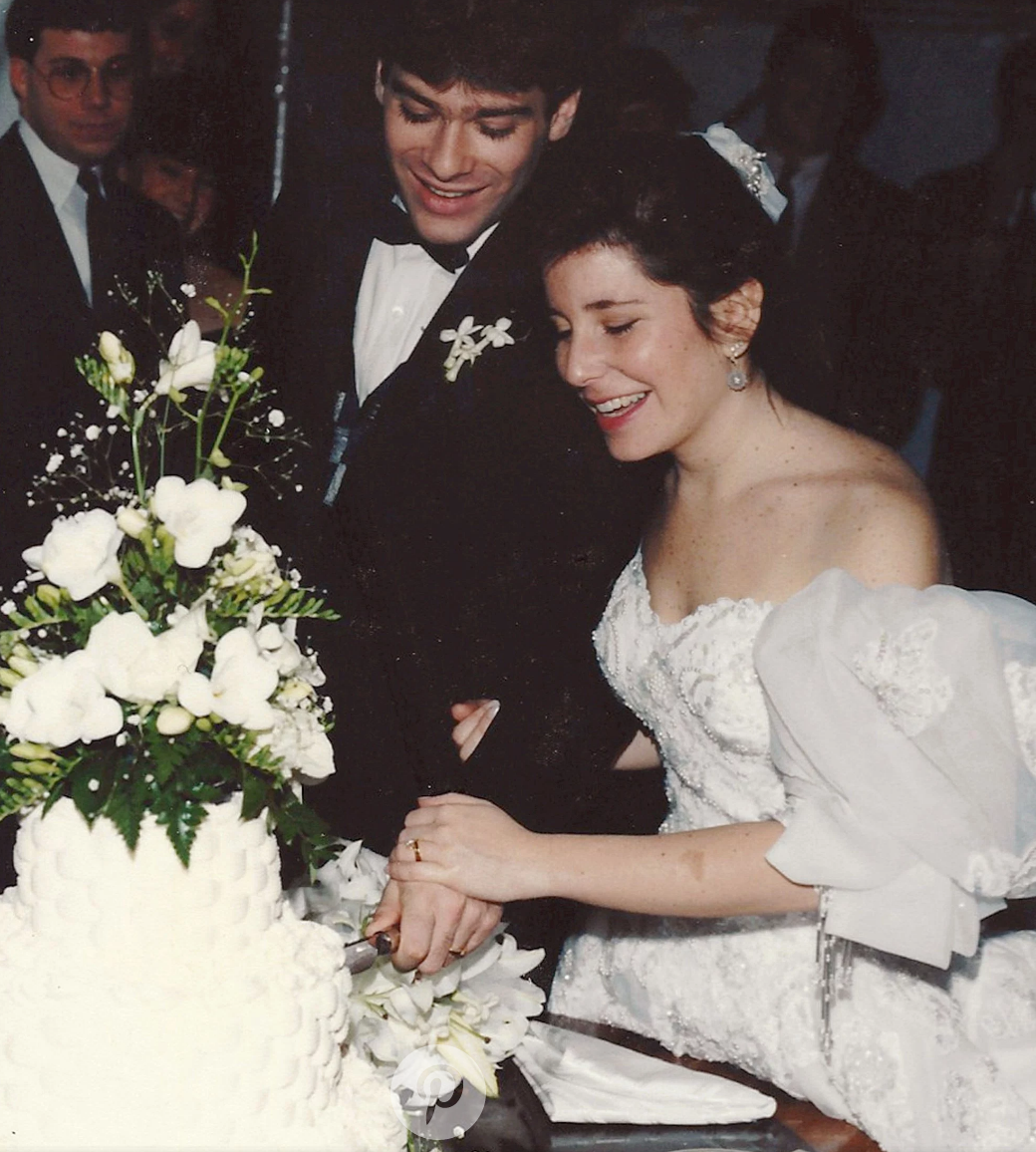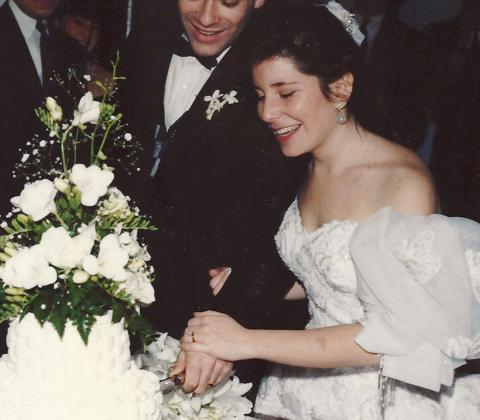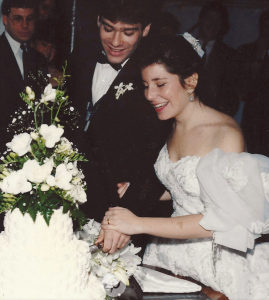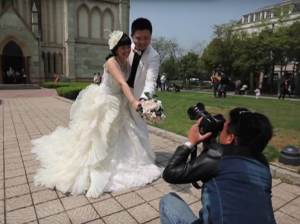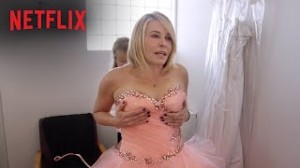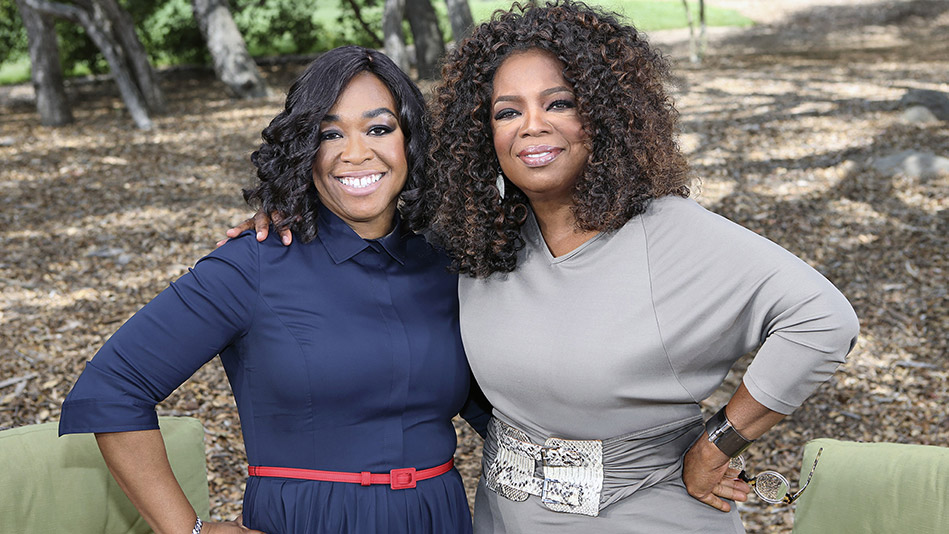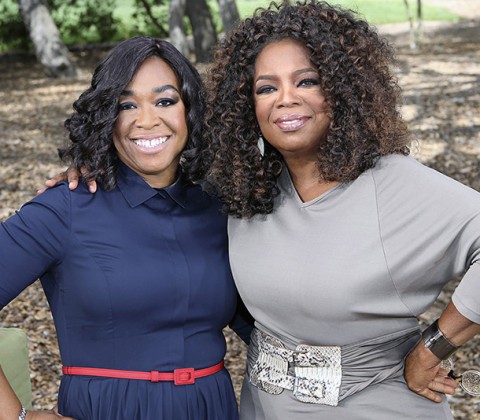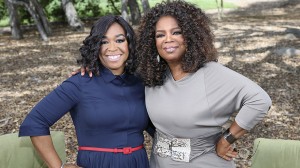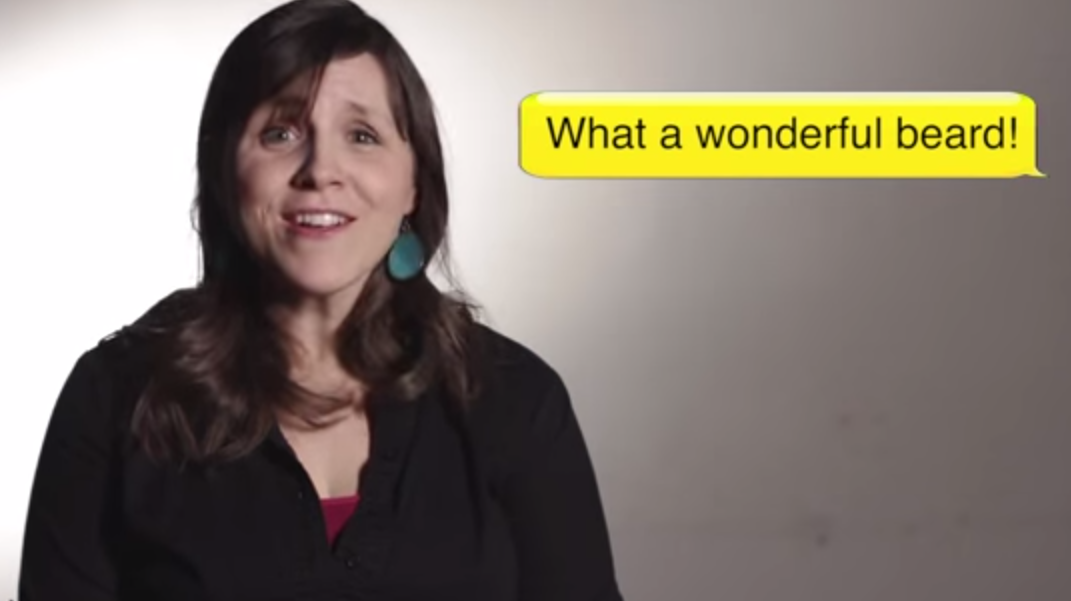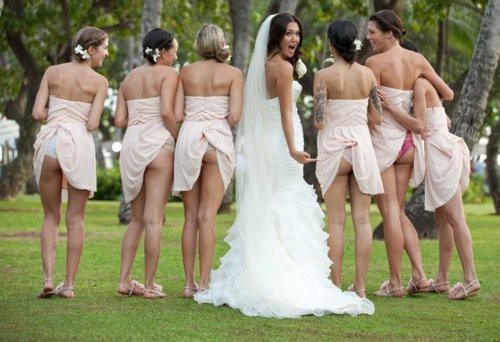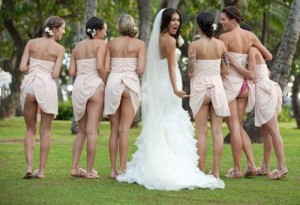Singlehood
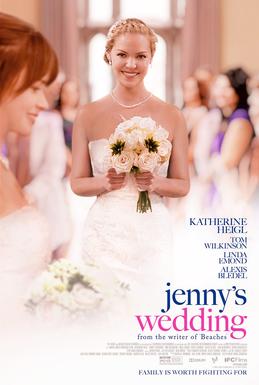

Katherine Heigl puts on another wedding dress in Jenny’s Wedding (Movie Review)
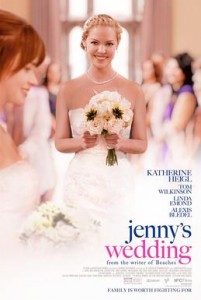
![]() Jenny’s Wedding (2015): When I saw Katherine Heigl in yet another wedding/rom com movie, I rolled my eyes. What other type of Wedding Industrial Complex and women-are-only-valuable-if-they’re-in-a-relationship shenanigans is she getting into this time?
Jenny’s Wedding (2015): When I saw Katherine Heigl in yet another wedding/rom com movie, I rolled my eyes. What other type of Wedding Industrial Complex and women-are-only-valuable-if-they’re-in-a-relationship shenanigans is she getting into this time?
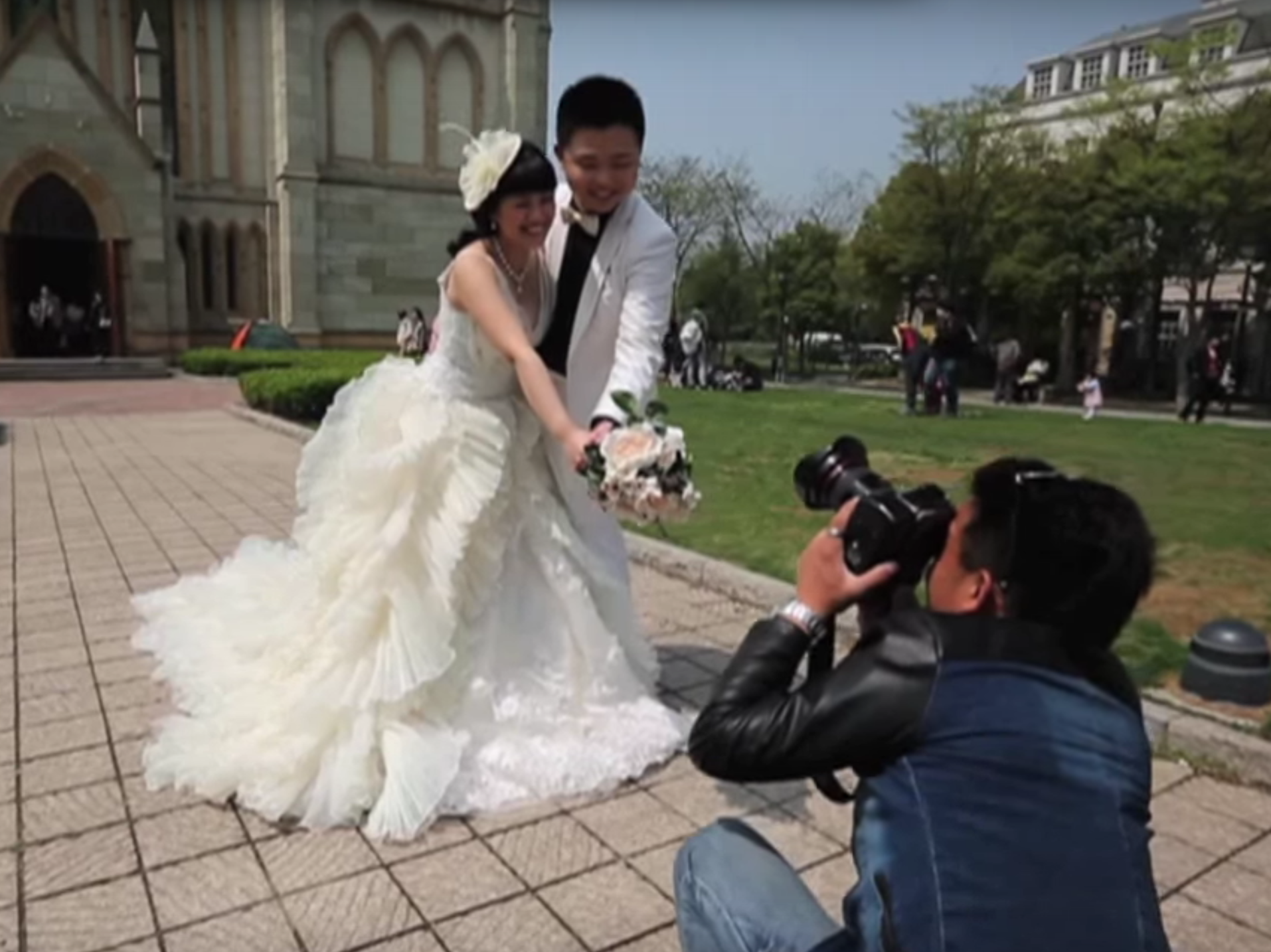
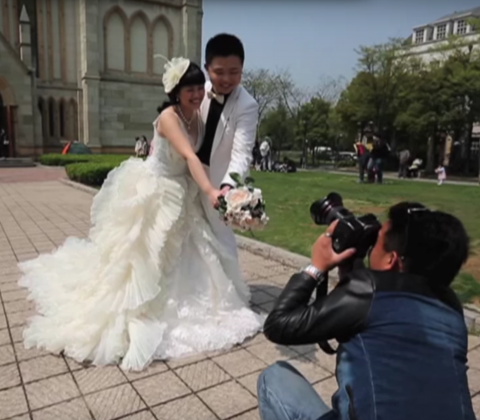
How Gender Discrimination Is Creating a Marriage Crisis in India and China
Discrimination against women is a global crisis. There is not one place in the world where women experience complete equality. The belief that women should access education, which leads to better physical and financial health, intellectual fulfillment and professional opportunities is not evenly held across the globe either. A lot of this has to do with the idea that a women’s place is only in the home and not as an outside member of the community. This is why many individuals in certain countries have practiced sex-selected abortions or infanticide if they find out they are having a girl (and for the record, while the video below focuses on India and China, those are not the only two places where these practices exist). Boys are socially allowed to get educations and be income earners and therefore can contribute to the family unlike women, who are not given the same opportunities or social stature. This is why many cultures see men are the more valued gender.


Chelsea Handler Does Marriage on Netflix
In Netflix’s new docuseries, Chelsea Does, comedian and former talk-show host, Chelsea Handler does marriage in the first episode. The only problem is that Chelsea can’t find anyone to do her until death do they part. Absent groom aside, she’s not sold on the idea of a wedding and sets off to discover what the big deal is about weddings and being married.
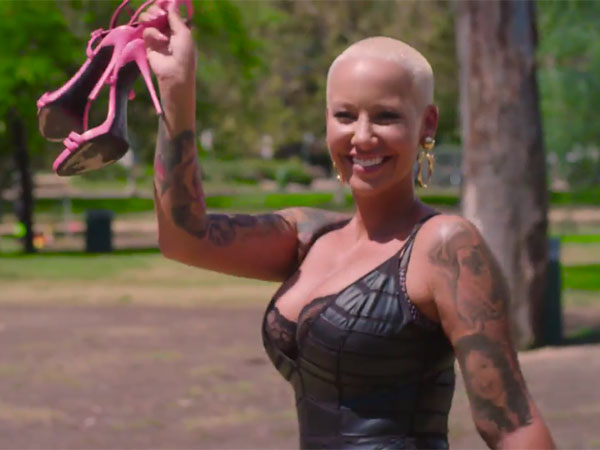
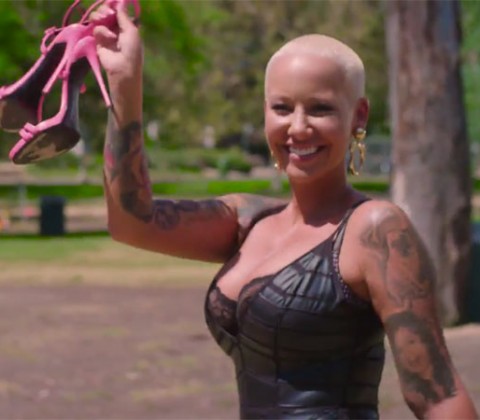
Amber Rose’s Walk of No Shame
For decades adults have been traversing the perils of walking home the morning after a hook up with their makeup smeared, hair disheveled in what is classically known as The Walk of Shame. Yet, Amber Rose is taking to the streets in her clothes from last night to declare that The Walk of Shame is no more! Amber Rose with the help of Funny or Die explores what it would be like if people didn’t shame those for enjoying sex and high fived those who got their socks rocked. In their eyes, if you’re walking The Walk of Fame you’re “living your best life!”


‘Trainwreck’ Amy Schumer Takes on Monogamy in New Movie
No one does irreverent women’s culture better than Amy Schumer on her Comedy Central show, Inside Amy Schumer. Now we can enjoy her hutzpah on the big screen with the movie, Trainwreck (in theaters July 17). Not only did she write this film, but she’s starring in it too. Chock one up for underrepresented women in Hollywood! While it seems Trainwreck might be another chick flick rom-com, the trailer shows Amy acting more like the unattainable, detached guy which hopefully breathes some fresh air into this exhausted genre.
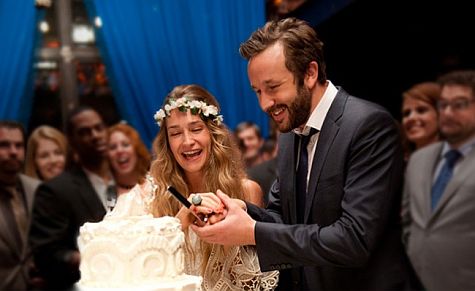

The Modern Equation for Getting Married
Tired of winking at people online? Starting to wonder why you’re friends with some 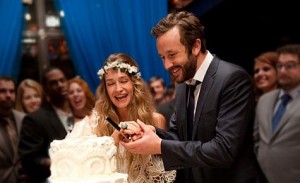 people if their other friends are the duds they keep setting you up with? Finding yourself starring over to the kitchen, wondering what type of hors d’ oeuvres they’ll be serving after the wedding ceremony? Focused on your career, grad school or the number of dates you have lined up? Thinking you can have it all and NOT be married? Or are you just holding out for the perfect one and the perfect conditions?
people if their other friends are the duds they keep setting you up with? Finding yourself starring over to the kitchen, wondering what type of hors d’ oeuvres they’ll be serving after the wedding ceremony? Focused on your career, grad school or the number of dates you have lined up? Thinking you can have it all and NOT be married? Or are you just holding out for the perfect one and the perfect conditions?
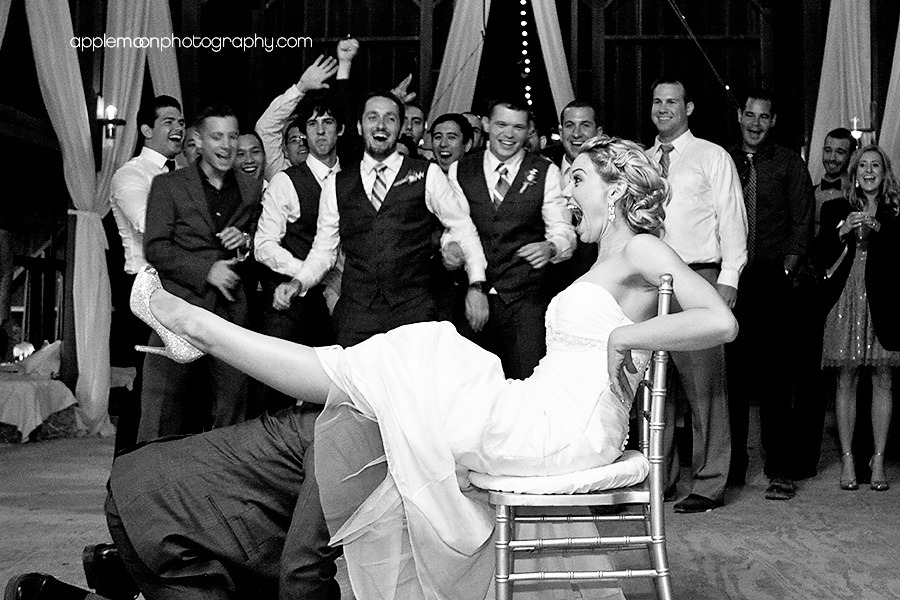

Garter Go or Garter Stay?
- Ever watched a groom disappear under the layers of lace and chiffon of a bride’s dress?
 He’s searching for the promise of an exciting wedding night, while guests wonder what’s really going on as his head is between the bride’s legs. With a drum roll he emerges triumphant, garter in his teeth, smiling. On such an innocent and pure occasion, the garter symbolizes the unspoken privilege of marriage – sex, sex and more sex. It’s a brazen implication in front of family, coworkers and maybe a religious official. But as guests grin and gasp in amusement or feigned horror, one has to wonder, is the garter really appropriate for a wedding?
He’s searching for the promise of an exciting wedding night, while guests wonder what’s really going on as his head is between the bride’s legs. With a drum roll he emerges triumphant, garter in his teeth, smiling. On such an innocent and pure occasion, the garter symbolizes the unspoken privilege of marriage – sex, sex and more sex. It’s a brazen implication in front of family, coworkers and maybe a religious official. But as guests grin and gasp in amusement or feigned horror, one has to wonder, is the garter really appropriate for a wedding?
During a medieval tradition called the bedding ceremony, the bride and groom were escorted by the groomsmen to the newlywed bedchamber. Since any piece of the bride’s garment was considered lucky with the garter as the crème de le crème, the men would subsequently scuffle with the bride to remove the garter. As a result, the bride started preemptively throwing it away. And thus the garter toss tradition was born because who doesn’t like a good ‘ole medieval groping?

Obviously, the garter is an erotic symbol, yet women throw asexual flowers. During the wedding game, brides shyly laugh and try to push the groom out of her undergarments, whereas the groom seeks the treasured garter using his sexual prowess. Imagine reversing the roles, with the bride sexually aggressive and tossing some tighty whities. Seems raunchy right? It’s a complete double standard to how men and women are allowed to treat sex, yet it’s accepted and practiced at nearly every wedding without a second thought.
Many a fair maiden has pranced around in a garter. It’s a fun, frilly piece of lace meant to be sexy and flirtatious. Other than Victoria Secret models, no one really wears them for functional reasons like holding up your pantyhose and knickers. It serves no practical purpose anymore; instead, promoting the notion that purity and virginity are present, but that the wearer has a friskier side. A perfect cat and mouse chase. Removable chastity.
There are creative possibilities to rethink the tradition more fairly and appropriately without abandoning the garter completely. Consider keeping it private and solely for the wedding night. Removing the garter can be quite the sensual act and will definitely be more fun to keep going without an audience waiting to dance the funky chicken. It could be relegated to a Jack and Jill party where guests will be close friends from the same generation who accept the sexuality of the garter removal and toss. Or for the couple who decides to keep the tradition, think about incorporating something equally sexual for the bride; say, removing her husband’s bow tie with her teeth – that would be talent – or if the couple is very bold, reverse the roles completely now that would be an evocative and witty message.
Click Here to become a Fan of The Feminist Bride
Related Links:
Forget The Bouquet, Single Ladies Need to Catch a Break
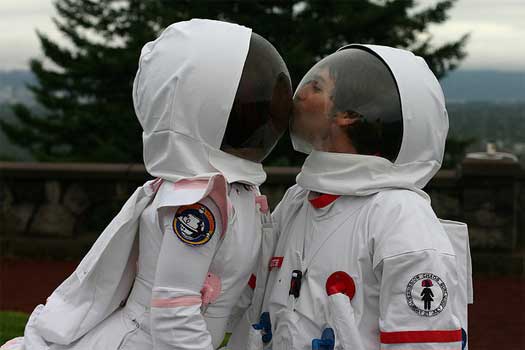

The Future of Marriage
In honor of the Supreme Court ruling today defending the legality and support of same-sex marriage,  I thought offering insight into the future of marriage would be a salient point. I’m thrilled that many same-sex couples in states that recognize gay marriage can now enjoy the same state and federal benefits hetero-couples do, and I hope that many of those in states behind the curve can start planning their own legal nuptials soon too. However, while today was a huge milestone there is still lots more to accomplish…for all sexual orientations. Everyone should keep marriage equality as their number one wish on their wedding registry.
I thought offering insight into the future of marriage would be a salient point. I’m thrilled that many same-sex couples in states that recognize gay marriage can now enjoy the same state and federal benefits hetero-couples do, and I hope that many of those in states behind the curve can start planning their own legal nuptials soon too. However, while today was a huge milestone there is still lots more to accomplish…for all sexual orientations. Everyone should keep marriage equality as their number one wish on their wedding registry.
In the meantime, I predict more scandalous celebrity marriages and divorces that will push the limits of conventional marriages (I’m looking at you Kardashians). Now with California, I foresee one highly publicized gay celebrity marriage sponsored by US Weekly that will help mitigate the fears of same-sex marriage, but also (unfortunately) perpetuate gay stereotypes. I envision a line of new wedding products designed by those briefly married celebrities. I foreshadow more diversity in the couples TLC wedding shows exploit. Rom-coms will continue to define its female lead’s value by the relationship she gets by the end of the movie. After all of this, I hope Hollywood will be a little more conscientious about how it treats marriage and those within it.
There are more positive things to predict though. I predict, like interracial marriage, gay marriage will be commonplace in the next twenty years and our children (born inside or outside of marriage) will read about this civil rights movement in their history books. In the near future, I anticipate people will come to better understand that mass cultural institutions cannot take precedence over a person’s private rights as protected under the fourteenth amendment. I also hope same-sex marriage naysayers learn that a strict exclusive definition to marriage dilutes its power and meaning, it is stronger when it is all encompassing and embracing. Love does not discriminate and as its formal frame, neither should marriage. I believe gay marriage will help eradicate sexist gender roles in wedding traditions and marriage and we will be better off for it. I predict every person, regardless of their race, age, gender and sexual orientation will eventually access the same rights, the same benefits and the same protection, not because they fell in love with someone, but because we’ve come to respect and love humanity above the private privileges marriage retains for itself. But most of all, I hope the terms same-sex or gay marriage disappear and we can just recognize those forms of marriage as what they truly are, just marriage.
I predict the next big issue when it comes to marriage will be among the permanent, lifestyle singles. With 95% of people trying marriage at least once in a lifetime, the next minority to feel excluded from the special provisions provided by marriage will be singles, and single families. This means that fixing the cracks and dents in our existing family law will be the next reform issue. And it’s a major one. We seldom realize that our existing family law discriminates against almost everyone, regardless of his or her race, sexual orientation, marital status and age. (Sorry, plural marriage participators I just don’t think the US is ready to pull your number for reform next.) I foreshadow that in the effort to eradicate singlism, the next great debate will not be what is marriage, but what constitutes family.
I’m struck by all the happy and celebratory posts on Facebook in light of today’s Supreme Court ruling, particularly by those who do not benefit directly from today’s historic ruling. Their elation shows true altruism. For everyone celebrating though, it proves that marriage is purely enjoyed when everyone can partake in it. And for my final predictions, I foresee a still long walk to the aisle for same-sex couples, but today it got a little shorter; I envision happier and just slightly brighter smiles at weddings, and I expect to get invited to many more weddings now.
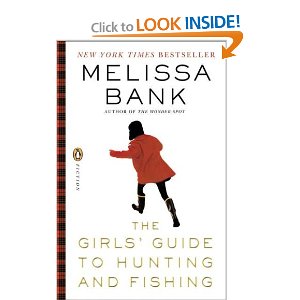

FB Book Review: The Girls’ Guide to Hunting and Fishing (Fiction)
![]() The Girls’ Guide to Hunting and Fishing by Melissa Bank: As an outdoorsy gal,
The Girls’ Guide to Hunting and Fishing by Melissa Bank: As an outdoorsy gal,  I picked this book up because of its awesome title, only to be mildly disappointed that hunting and fishing only referred to men and dating. Readers follow the life of Jane Rosenthal who is pessimistically and somewhat passionately needy when it comes to her own self esteem, and not surprisingly with men and relationships. Her love life involves a series of unhealthy relationships that she seems to understand are a function of her own personal issues but does little to make a clean break before any damage is done. At a breaking point on her own self worth, she turns to a self help book in order to find love. The book’s most redeeming moment is when Jane finally realizes that the book’s advice to act like a hard-to-get, traditionally feminine, demure damsel is probably the worst advice. The book seems to be hailed as an accurate depiction of women’s dating troubles, but I would have found the book more salient had it focused on problem solving stories and less on the problems. (Subject: Fiction, Love, Boyfriends, Relationships, Self Esteem)
I picked this book up because of its awesome title, only to be mildly disappointed that hunting and fishing only referred to men and dating. Readers follow the life of Jane Rosenthal who is pessimistically and somewhat passionately needy when it comes to her own self esteem, and not surprisingly with men and relationships. Her love life involves a series of unhealthy relationships that she seems to understand are a function of her own personal issues but does little to make a clean break before any damage is done. At a breaking point on her own self worth, she turns to a self help book in order to find love. The book’s most redeeming moment is when Jane finally realizes that the book’s advice to act like a hard-to-get, traditionally feminine, demure damsel is probably the worst advice. The book seems to be hailed as an accurate depiction of women’s dating troubles, but I would have found the book more salient had it focused on problem solving stories and less on the problems. (Subject: Fiction, Love, Boyfriends, Relationships, Self Esteem)
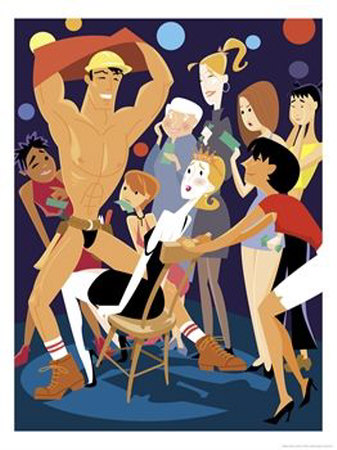

The Last Hurrah
It’s the last call, the final mile, and the end of an era. It’s the time you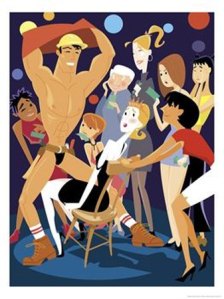 spend saying goodbye to singlehood: It’s the bachelor/bachelorette party.
spend saying goodbye to singlehood: It’s the bachelor/bachelorette party.
It’s a night that strikes fear into the hearts of many a young lover – where fiancés disappear in the night to sow wild oats; where irresistible strippers spread their legs for the almighty dollar; where “what happens in Vegas stays in Vegas” is more than just a motto, it’s a credo; and where the ability to remember the night’s events is worn either as a medal of honor or as a sign of disgrace.

The event itself has historically been the man’s day, yet women are now taking part as well. Some women dare to rival the debauchery of bachelor parties, but many also insist upon propriety and decorum above this one “get-out-of-jail free” card. No matter your taste in parties, it’s important to make sure the party is a representation of your ideals – not what other people think a bachelorette party should entail or how a woman should act.
Contrary to popular belief, I don’t believe this momentous night is about saying goodbye to singlehood. Whether you’re the bride with the “suck-for-a-buck” t-shirt, or want to form a sewing circle, a bachelorette party is more about bonding with friends – of all genders. Traditionally, this is a same-sex party, and while I’m all for ladies’ nights, women keep anatomically dissimilar friends these days. So invite your guy friends! There is no rulebook that says a bachelorette party has to be ”just the girls.”
We’ve all seen the trend where opposite-sex friendships dissolve because a significant other felt threatened, or that eventually the lady felt like the male friendship was inappropriate, whether it really was or not. What does it say about a relationship that limits with whom you can be friends? If you value a friendship of the opposite sex, it’s important to honor it, and if your partner values you, then he should respect these friendships as well. It’s a powerful testament to see brides make a man a bridesmaid, and vice versa. A relationship is stronger when a partner can accept friends of all shapes, sizes and anatomy.
As my friends and I brainstormed on my own party, we stopped to consider the girls in relationships – would their boyfriends and husbands approve of a bachelorette trip…to Vegas? We quickly noted the folly of this thought process – we considered ourselves progressive women, yet even we have been conditioned to look to our men for approval. Yes, it’s respectful to share information about the event, but we women have autonomy to make decisions, exercise that right, even if they are unpopular ones. So chose Vegas or whatever type of event that makes the night a happy one for yourself.
There are double standards when it comes to the party scene as well. Though equal opportunity partying is expected, it is still common for partners to be manipulated into thinking that if one partner abstains (for example, from seeing a stripper), the other should be held to the same standard. The desire to party hardy and see a stripper does not by default mean a partner is straying from the relationship (there’s a no touch policy in the strip joints anyway). Sayonara-singlehood parties do have a bad reputation, but a relationship falters not because of the nature of the party, but because of deeper, rooted issues in the relationship. If trust cannot be shown even in the brief presence of a stripper or just amongst friends, how can it ever be earned before you get to the altar?
Having experienced a bachelorette party or two already, I was constantly dismayed at how most women treated this opportunity. Most wanted to go to the beach and read – no alcohol, no scantily clad men, no penis pops or disastrous costumes only suitable for Halloween parties – not because it’s what they wanted, but because of a belief that this type of behavior was unbecoming and inappropriate since they were soon to be someone’s wife. In asking these ladies the reasons behind their choices, they simply explained, “those days are over for me.” These ladies, who in college did keg stands, flashed their assets and spent many a night praying to the porcelain god, could not let their hair down for one night. It is perfectly fine to move past college nights of drunken debaucheries – BUT – there’s no need to assume sainthood just because we’re putting a ring on our fingers. Neither extreme is a fair representation of who we are or who we will be, because the truth of the matter is once we do marry, we’re still the same girls who ran naked through the quad freshman year. History does not have to repeat itself, but we also don’t have to abandon it either. Your partner loves you for who you are now, not who you will become. Don’t change and compromise yourself because you think you have to as a wife.
The truth is there is no such thing as a “last hurrah.” We said goodbye to singlehood the moment we stepped into a monogamous relationship. A bachelor/bachelorette party is not a chance to experience singlehood for “one last time” – it’s a chance for camaraderie with your closest friends, to laugh, to relax. These parties are harmless, but when more power is given to its stereotypes over trust in a long-term relationship, it’s a sign of weaknesses in the relationship. If these issues come to light, it is my hope that the partner has enough confidence to reassess the relationship, or at least address the real issue at hand. If there is real trust and each partner understands the true reasons behind hosting a bachelor/bachelorette, which is friendship, then there should be no limitations in the style of a bachelorette party. We should be free to be ourselves amongst our friends, men and women alike – be it a night full of shots or a relaxing day at the spa.


Putting the “V” in Valentine’s Day
When it comes to celebrating Valentine’s Day, we seek to spend it with those we love and  shower them with all the accoutrements a Hallmark Valentine’s can bestow. What about spending Valentine’s Day in a non-commercial way? What if you could honor the women in your life by participating in something that seeks to support and empower them? What if you spent this Valentine’s Day learning how to appreciate yourself?
shower them with all the accoutrements a Hallmark Valentine’s can bestow. What about spending Valentine’s Day in a non-commercial way? What if you could honor the women in your life by participating in something that seeks to support and empower them? What if you spent this Valentine’s Day learning how to appreciate yourself?
Hold the Happy 39th ‘Roe vs. Wade’, Political Anti-Abortion Talk Rampant
As an artist, I’m usually caught in a conversation with patrons over the stories related to specific pieces of work. A few years ago, I found myself talking to a 50 or so year-old woman about my photo of Havana, Cuba. Both having traveled there we positively swapped stories of the people, the climate and the culture. Any American in Havana is rare these days, I was lucky enough to travel down there legally in 2002 on an academic visa while studying abroad (Fidel even spoke to us at an assembly and then he threw a party for us at a compound). So I was curious why this other American was there.
“Oh,” she nonchalantly replied, “I was there in the 60s to get an abortion.”
Having spent all but five minutes with this woman, I was taken aback by her candidness. I didn’t press the story much further, but it told me 1. at the time abortion was illegal in the US and 2. her presence in Cuba was probably even more illegal. So dire her need for an abortion, she sought the help from one of our countries most notorious enemies because the service was legal there and because it would be performed safely by a surgeon (they do have excellent healthcare there). Making abortion illegal creates a lot of unsafe procedures that put women’s lives at risk. And I have to admit I had no clue about home-abortion kits until I watched Revolutionary Road with Kate Winslet. Hollywood drama aside, no health class or any other source had bothered to inform me as to what life was like before Roe vs. Wade. (Read Mother Jones 2004 “The Way It Was” by Eleanor Cooney for a really good account of pre-Roe).To get an idea on current global statistics when abortions are illegal, “Nearly half of all abortions worldwide are unsafe, and nearly all unsafe abortions occur in developing countries. In the developing world, 56% of all abortions are unsafe, compared with 6% in the developed world,” [Guttmacher Institure].
Roe vs. Wade just celebrated its 39th birthday but it’s still under contention. As the 2012 presidential elections come closer, the politicians’ stances on topics such as abortion come into the spotlight. GOP candidate Rick Santorum opposes abortion in the strictest sense, even in cases of rape and incest. He claims his stance is not religious based, but in a recent interview with CNN’s Piers Morgan he eventually mentioned the big “G.” He argued a woman should, ” ‘accept this horribly created’ baby, because it was still a gift from God, even if given in a “broken” way.” Santorum was also part of the “Partial Birth Abortion Ban bill” passed by Bush #2 in 2003. Characterized as almost zealous in his anti-abortion lobbying and protection of human life, he somehow finds it reasonable to support the death penalty in absolute cases of guilt. Seems his belief in the value of life is conditional. He is just one of the hour GOP candidates that believe Roe vs. Wade should be reversed. Even Michelle Bachmann is claiming that abortion will be made illegal after the 2012 elections.
While it is not hard to understand how religion has influenced these politicians’ abortion views, the Guttmacher Institute release worldwide abortion statistics that suggests that making abortion illegal actually increases the rate of abortions. If the GOP candidates using reasonable 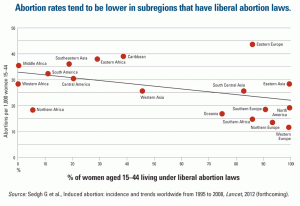 deduction skills, fulfilling their goal of making abortion illegal would not solve their problem at all. In fact, between 1995 and 2008 abortion rates have lowered in developed nations, which can be explained by better access to sex education, general education and access to healthcare. And countries with more liberal laws on abortion actually have lower abortion rates.
deduction skills, fulfilling their goal of making abortion illegal would not solve their problem at all. In fact, between 1995 and 2008 abortion rates have lowered in developed nations, which can be explained by better access to sex education, general education and access to healthcare. And countries with more liberal laws on abortion actually have lower abortion rates.
Obama had this to opposing view to share, “As we mark the 39th anniversary of Roe v. Wade, we must remember that this Supreme Court decision not only protects a woman’s health and reproductive freedom, but also affirms a broader principle: that government should not intrude on private family matters. I remain committed to protecting a woman’s right to choose and this fundamental constitutional right.” Santorum accused Obama of being “radical and extreme” when it came to women’s reproductive births.
I remember an interview with Sarah Palin around the 2008 elections talking about how she was so happy that Bristol chose to keep her baby and made the right decision in her book. The reporter nailed Ms. Palin, anti-abortion supporter, on her choice of words, i.e. “chose.” The irony of the comment was not surprisingly lost on Palin, which goes to show that no matter what your view is, it’s the right to choose that makes a difference. It’s not a really happy birthday for Roe vs. Wade if people are at great odds almost 40 years later on the morality of the issue. We have yet to understand that personal beliefs should not dictate public direction. My personal choice when it comes to my body is my own, but I should have the right to have access to any possible options and not have someone predetermine what they think is the right course for me. Only I can decide that.
Rick Santorum On Opposition To Abortion In Cases Of Rape: ‘Make The Best Out Of A Bad Situation’.


FB Movie Review: The Romantics (2010)
![]() The Romantics (2010) – Seven friends gather over the weekend for the wedding of two
The Romantics (2010) – Seven friends gather over the weekend for the wedding of two 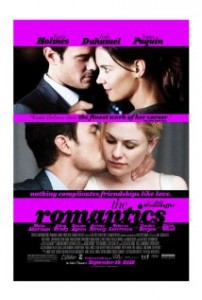 of their friends, except the Maid of Honor is still in love and sleeping with the groom (Josh Duhamel). The dysfunction of the friends unfolds during the course of the night revealing that everyone is everybody’s muse in body, mind and soul, thus complicating the existing relationships. The poignant moment is in the end when the Maid of Honor (Katie Holmes) confronts the bride (Anna Paquin) moments before she’s to walk down the aisle. Begging the question would you have the guts to tell someone the truth before they made a mistake? What would you do if you were the bride? Director: Galt Niederhoffer (Subject: Wedding, Friends, Affairs)
of their friends, except the Maid of Honor is still in love and sleeping with the groom (Josh Duhamel). The dysfunction of the friends unfolds during the course of the night revealing that everyone is everybody’s muse in body, mind and soul, thus complicating the existing relationships. The poignant moment is in the end when the Maid of Honor (Katie Holmes) confronts the bride (Anna Paquin) moments before she’s to walk down the aisle. Begging the question would you have the guts to tell someone the truth before they made a mistake? What would you do if you were the bride? Director: Galt Niederhoffer (Subject: Wedding, Friends, Affairs)
For more Feminist Bride Movie Reviews click here.
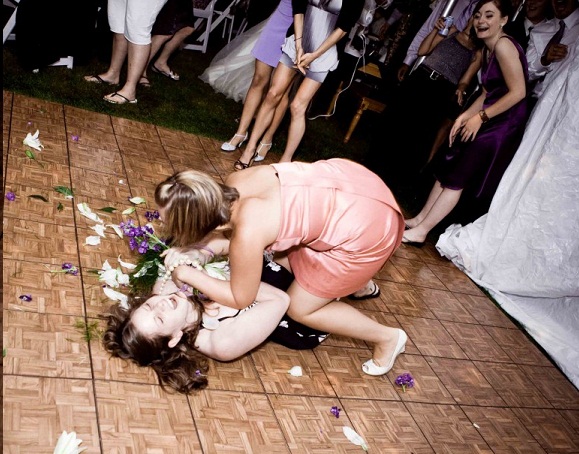
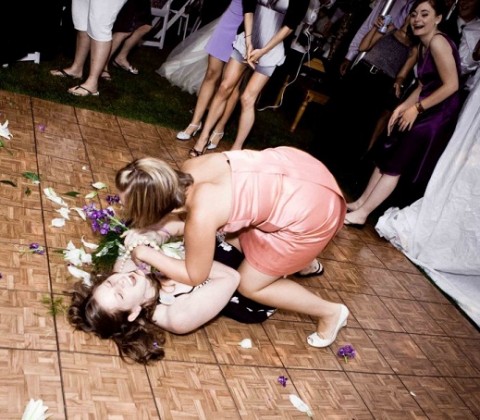
Feminist Fight for Change, Not The Wedding Bouquet
(This post first appeared 4/17/2010) Come July, I am marrying a man, I will wear white, I will 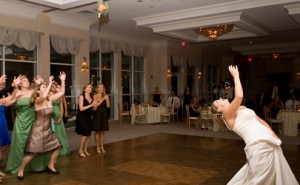 even wear high heels (for at least a portion of the wedding) and I call myself a feminist. As a bride and a feminist, my goal is to dissect the formal, patriarchal institution of weddings in order to modernize the practice and align with current women’s rights. So, because this is a topic that I have been actively thinking on for months, it came as no surprise to me when Jessica Valenti, feminist and author of Full Frontal Feminism and the website www.Feministing.org, announced her marriage to a man and her intention to wear a bridal gown. The overwhelming discontent and criticism from Valenti’s feminist readership, on the other hand, was a surprise.
even wear high heels (for at least a portion of the wedding) and I call myself a feminist. As a bride and a feminist, my goal is to dissect the formal, patriarchal institution of weddings in order to modernize the practice and align with current women’s rights. So, because this is a topic that I have been actively thinking on for months, it came as no surprise to me when Jessica Valenti, feminist and author of Full Frontal Feminism and the website www.Feministing.org, announced her marriage to a man and her intention to wear a bridal gown. The overwhelming discontent and criticism from Valenti’s feminist readership, on the other hand, was a surprise.
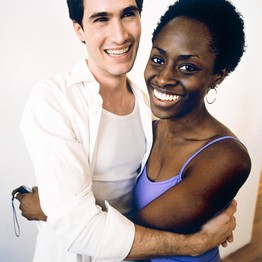

An Interracial Fix for Black Marriage – WSJ.com
While everyone is focused on gay marriage rights these days, we  forget that the institution of marriage still has a lot of it’s old broken and quirky issues. While the right for interracial couples to marry passed in the 1967 in the case of Loving vs. Virginia (the last state to remove its ban on interracial marriage was South Carolina in 1998).
forget that the institution of marriage still has a lot of it’s old broken and quirky issues. While the right for interracial couples to marry passed in the 1967 in the case of Loving vs. Virginia (the last state to remove its ban on interracial marriage was South Carolina in 1998).
It seems the relationship battle for black women is still on going. In a WSJ article had an eye-opening account of the black women’s dating prospects,

